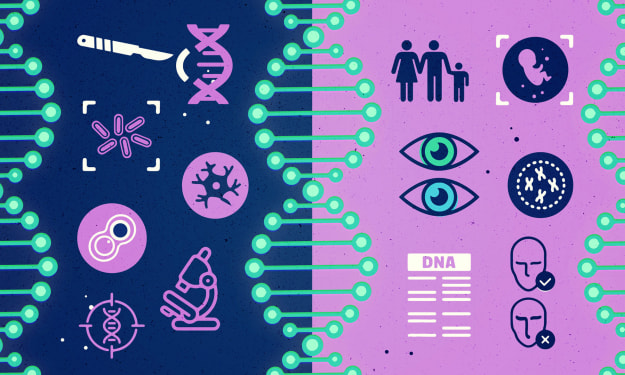Eternal Dreams: Exploring the Concept of Human Immortality and Its Feasibility
Description: This thought-provoking article delves into the age-old fascination with human immortality and explores the scientific, ethical, and social aspects of this concept. From biological immortality to digital immortality, the article examines the current state of research and the challenges associated with achieving immortality. Proponents and critics' arguments, potential benefits and risks, and the profound implications of immortality on society, culture, and the environment are examined in detail. Join us on a journey to explore the possibilities, limitations, and ethical implications of human immortality. Is living forever truly within our reach? Let's find out.

The idea of human immortality, or residing forever, has been a topic of fascination for centuries. The idea of conquering death and achieving eternal life has captured the human imagination, and throughout history, various myths, legends, and scientific speculations have emerged around the possibility of achieving immortality. In this article, we will explore the concept of human immortality, its feasibility from a scientific perspective, the ethical implications it raises, and the potential challenges associated with achieving immortality.
From a scientific standpoint, achieving true immortality, where a human being remains alive indefinitely without aging or succumbing to diseases, is currently beyond the realm of possibility. The human body is subject to the laws of nature, including the process of aging, which involves the gradual deterioration of cells, tissues, and organs over time. While advancements in medical science and technology have significantly extended human lifespan over the past century, achieving complete and irreversible immortality remains an elusive goal.
However, there are certain concepts related to immortality that are being explored in scientific research. One such concept is "biological immortality," which refers to the ability of certain species, such as some types of jellyfish and turtles, to avoid the process of aging and death, and potentially extend their lifespan indefinitely. These organisms are capable of regenerating damaged tissues and cells, and do not show the typical signs of aging, such as a decline in physical or cognitive abilities. Scientists are actively studying these species in the hope of understanding the underlying biological mechanisms that could potentially be harnessed to extend human lifespan.
Another concept related to human immortality is "digital immortality," which involves the idea of preserving a person's consciousness or mind in a digital format, such as through brain uploading or mind uploading. The idea is that if the human mind could be transferred to a digital substrate, it could potentially continue to exist and function even after the biological body has ceased to function. However, this concept is highly speculative and raises numerous ethical, philosophical, and technical questions, including issues related to personal identity, consciousness, privacy, and the limitations of technology.
Despite the scientific challenges and ethical concerns, the pursuit of human immortality has both proponents and critics. Proponents argue that achieving immortality could have numerous benefits, such as extending human lifespan, eliminating diseases related to aging, and allowing humans to continue to learn, explore, and contribute to society indefinitely. They argue that immortality could lead to a better quality of life and enable humans to fulfill their potential to the fullest.
On the other hand, critics raise valid concerns about the potential risks and drawbacks of achieving human immortality. They argue that death is a natural part of the life cycle and serves as a mechanism for population control and renewal. Without the inevitability of death, they argue, there could be negative consequences such as overpopulation, resource depletion, and loss of motivation for personal growth and development. Critics also raise ethical concerns about the potential unequal distribution of immortality-related technologies and the potential for abuse, such as the concentration of power and wealth among a select few who have access to such technologies.
Even if achieving human immortality were possible, it would come with significant challenges. For example, the social, economic, and cultural implications of immortality would be profound. Concepts such as marriage, family, and generational succession would need to be rethought, as individuals could potentially live for centuries or even longer. Economic systems, retirement plans, and healthcare systems would need to adapt to the prolonged lifespan of individuals. There would also be concerns about resource allocation, sustainability, and environmental impact if a significant portion of the population were immortal.
In conclusion, while the concept of human immortality has captured the human imagination and continues to be explored in scientific research, achieving true immortality remains beyond the realm of possibility at the current state of
About the Creator
Kanesarajah Panuyan
I'm Panuyan, a university student pursuing a degree in Aquatic resources technology. I'm passionate about technology and its potential to improve people's lives.
Enjoyed the story? Support the Creator.
Subscribe for free to receive all their stories in your feed. You could also pledge your support or give them a one-off tip, letting them know you appreciate their work.






Comments (1)
Super